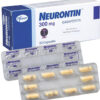Medication Overview: Methotrexate
Methotrexate is an antimetabolite and antifolate drug classified as a disease-modifying antirheumatic drug (DMARD). It typically treats certain types of cancer, severe psoriasis, and rheumatoid arthritis. It functions by inhibiting the metabolism of folic acid, thereby reducing immune system activity. This medication is often used in lower doses for autoimmune diseases compared to cancer treatments.
Pharmacokinetics and Metabolism
Methotrexate is absorbed through the gastrointestinal tract when taken orally, although its absorption can decrease with higher doses. Once in the bloodstream, it binds extensively to serum albumin. It is primarily metabolized in the liver and tissues, and the kidney excretes it. The drug has a variable half-life, typically between three to ten hours in low doses. However, for high doses, the half-life may extend due to saturation of renal elimination pathways.
Administration Guidelines
Methotrexate can be administered orally in tablet form, as an intramuscular injection, intravenous, or subcutaneous injection, depending on the indication and patient needs. The dosage and schedule depend on the patient’s condition, body surface area in cases of cancer, or specific weekly doses for autoimmune diseases like rheumatoid arthritis. Patients are generally started on a low dose that is adjusted based on therapeutic response and tolerability.
Mechanism of Action
Methotrexate inhibits the enzyme dihydrofolate reductase, reducing the tetrahydrofolate concentration vital for DNA synthesis and repair. This effect is the basis for its use in treating rapidly proliferating cells, such as cancerous cells and hyperactive immune cells in autoimmune diseases. Additionally, methotrexate promotes the accumulation of adenosine, which plays a significant role in its anti-inflammatory effects.
Indications for Use
Methotrexate is primarily indicated for treating certain cancers, such as acute lymphoblastic leukemia, breast cancer, and head and neck cancers, among others. It is also a treatment option for severe psoriasis, controlling severe symptoms that do not respond to other treatments. Another common use is in managing rheumatoid arthritis and other autoimmune conditions, aiming to slow disease progression and alleviate symptoms.
Common Side Effects
Methotrexate can cause various side effects, with the most common being nausea, vomiting, and diarrhea. Patients may also experience mouth sores or ulcers due to its effects on rapidly dividing cells. Hair loss and fatigue are common but generally less severe than in other anticancer medications. Low doses for autoimmune conditions typically result in fewer and less severe side effects.
Drug Interactions
Methotrexate interacts with several medications, amplifying its effects or increasing toxicity risk. Nonsteroidal anti-inflammatory drugs (NSAIDs), like ibuprofen, can increase methotrexate levels in the body by reducing renal clearance. Penicillins, sulfonamides, and probenecid also affect its excretion. Caution should be exercised with drugs like trimethoprim-sulfamethoxazole and aspirin, which may potentiate its adverse effects.
Monitoring Parameters
Patients on methotrexate require regular monitoring to prevent toxicity and ensure therapeutic effectiveness. Laboratory evaluations commonly include complete blood count (CBC) to monitor for blood dyscrasias, liver function tests, and renal function assessments. Depending on the patient’s age and comorbid conditions, additional tests such as chest X-rays (in pulmonary involvement) or hepatorenal imaging may be required.
Special Populations
Methotrexate usage requires caution in special populations like those with renal impairment, where dosage adjustment is critical due to the primary kidney excretion method. In elderly patients, decreased organ function and polypharmacy may necessitate lower initial doses. Its use in pregnant or breastfeeding individuals is contraindicated due to teratogenicity and adverse effects on fetal development, respectively.
Contraindications and Precautions
Contraindications to methotrexate include pregnancy, breastfeeding, known hypersensitivity, and severe renal or hepatic impairment. Patients with active infections, anemia, leukopenia, or thrombocytopenia should be carefully monitored or treated with other modalities. Alcohol use is discouraged due to potential liver toxicity. Precautions in handling this medication are advised, especially in healthcare settings dealing with injectable forms.
Storage and Stability
Oral tablets of methotrexate should be stored at room temperature, away from excess moisture and heat. Injectable forms may require refrigeration, depending on specific product instructions. Vials should be protected from light to maintain drug potency. Proper handling per institution protocols ensures safety due to methotrexate’s cytotoxic nature.
Patient Counseling Points
Patients should receive counseling on potential side effects, adherent dosing schedules (usually weekly for autoimmune conditions), and the importance of regular blood monitoring. They should be informed of the need to report symptoms like persistent cough or unexplained bleeding promptly. Discussions about minimizing alcohol use and understanding drug interaction potential are equally essential.
Disposal Considerations
Disposal of methotrexate should be performed per local hazardous waste regulations given its cytotoxic properties. Unused or expired medication should not be flushed or poured into a drain. Pharmaceutical take-back programs provide safe disposal alternatives. Healthcare facilities typically have protocols for the disposal and handling of hazardous drugs to minimize environmental and human exposure risks.








Reviews
There are no reviews yet.